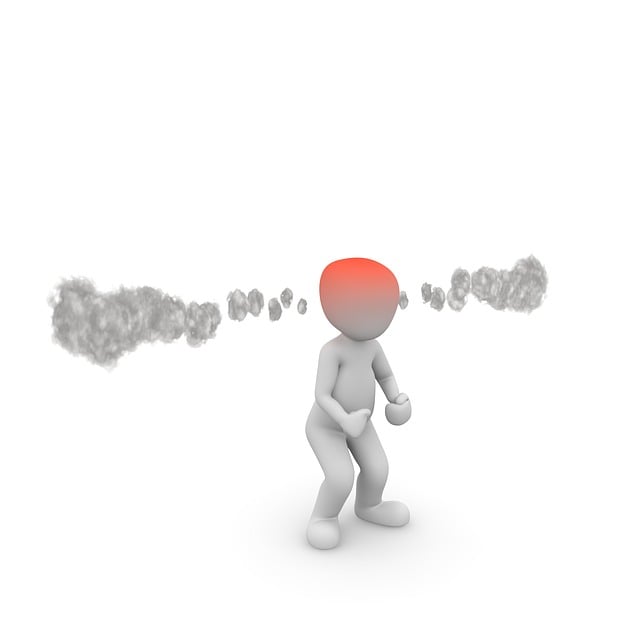Anger control therapy addresses aggressive behavior by targeting underlying causes like unlearned coping mechanisms, trauma, and mental health issues. It equips individuals with skills to recognize triggers, develop healthier strategies, and regulate emotions through CBT, mindfulness, and relaxation techniques. Tailored sessions empower clients to transform anger into constructive outlets, improve relationships, and enhance overall well-being. Group therapy offers community and shared learning while personalized therapy focuses on individual needs. Integrating daily practice, journaling, support systems, and relapse prevention plans ensures long-term success in managing aggressive behavior effectively.
Aggressive behavior can have profound impacts on individuals and relationships. This comprehensive guide explores effective strategies for managing aggression, focusing on anger control therapy as a cornerstone of treatment. We delve into the underlying causes and triggers of aggressive outbursts, dissect popular techniques used in anger management programs, and highlight the importance of creating supportive environments for lasting change. Additionally, we compare personalized vs group therapy, offer practical tips for integrating therapy into daily life, and discuss strategies for long-term success and relapse prevention.
Understanding Aggressive Behavior: Causes and Triggers

Aggressive behavior is a complex issue that stems from a combination of internal and external factors. Understanding the causes and triggers behind such actions is crucial for effective therapy. Many cases originate from unlearned coping mechanisms, where individuals express their frustration or anger in destructive ways due to a lack of healthy alternatives. Unresolved trauma, emotional distress, or certain mental health conditions can also play a significant role, leading to impulsive and aggressive responses.
One key aspect to address is anger control therapy, which focuses on teaching individuals how to recognize and manage their anger effectively. Through various techniques, therapists help clients identify triggers, develop healthier coping strategies, and improve their emotional regulation skills. By understanding the underlying causes, personalized therapy sessions can offer tools to transform aggressive impulses into constructive outlets, fostering better relationships and overall well-being.
The Role of Anger Control Therapy in Treatment

Anger control therapy plays a pivotal role in treating aggressive behavior by helping individuals understand and manage their anger effectively. This type of therapy focuses on identifying the triggers that lead to explosive emotions, providing strategies to respond calmly instead of reacting aggressively. Through various techniques like cognitive-behavioral therapy (CBT), mindfulness training, and relaxation exercises, clients learn to recognize early warning signs of anger and develop healthier coping mechanisms.
The goal is not to suppress anger but to transform it into a more constructive emotion. By mastering anger control skills, individuals can improve their relationships, reduce conflicts, and enhance overall well-being. This therapeutic approach empowers people to navigate challenging situations with increased self-awareness and emotional resilience, fostering positive changes in their behavior and promoting a safer, more harmonious environment.
Common Techniques Used in Anger Management Programs

Anger management programs employ a variety of techniques to help individuals gain control over their aggressive impulses. Cognitive Behavioral Therapy (CBT) is a commonly used approach, focusing on identifying and changing negative thought patterns that contribute to anger. Through CBT, individuals learn to replace irrational thoughts with more balanced perspectives, thus reducing their emotional reaction to stressful situations. Another popular method is Mindfulness-Based Stress Reduction (MBSR), which encourages present-moment awareness and non-judgmental acceptance of emotions, including anger.
Additionally, techniques like relaxation training, such as deep breathing exercises and progressive muscle relaxation, equip individuals with skills to calm themselves during moments of heightened anger. Interpersonal therapy (IPT) also plays a significant role, focusing on improving communication skills and resolving conflicts in relationships, which can be a major trigger for aggressive behavior. These evidence-based methods are tailored to meet the unique needs of each individual, offering them tools to manage their anger effectively and foster healthier interactions with themselves and others.
Creating a Supportive Environment for Change

Creating a supportive environment is pivotal in anger control therapy, as it facilitates the process of change and recovery for individuals struggling with aggressive behavior. This involves fostering a safe, non-judgmental space where clients feel empowered to explore their emotions and triggers. Therapists can achieve this by establishing clear boundaries, ensuring confidentiality, and promoting active listening. By creating such an environment, individuals are more likely to open up about their challenges and engage in the therapeutic process.
Additionally, it’s essential to incorporate techniques that enhance coping skills and stress management. This could include teaching relaxation strategies, helping clients identify healthier outlets for anger, and encouraging them to express their feelings in constructive ways. When an individual feels supported and equipped with these tools, they’re better positioned to manage their anger effectively and make lasting positive changes.
Personalized vs Group Therapy: Which is More Effective?

When it comes to treating aggressive behavior, the choice between personalized and group therapy is a key consideration. Personalized or individual therapy involves one-on-one sessions with a therapist, tailored specifically to the client’s unique needs and challenges. This approach offers several advantages, such as enhanced confidentiality, allowing clients to delve deeply into sensitive issues without fear of judgment or repercussions. It also enables therapists to develop customized strategies for anger control therapy, addressing specific triggers and underlying causes.
Group therapy, on the other hand, brings together a diverse range of individuals facing similar challenges. While it may not offer the same level of customization as personalized therapy, group settings can foster a sense of community and shared understanding. Participants can learn from one another’s experiences, gain different perspectives on their behavior, and develop social skills for managing anger in real-world situations. The dynamic nature of group therapy can be particularly effective in promoting empathy, self-awareness, and responsible decision-making related to anger control.
Integrating Therapy into Daily Life: Practical Tips

Integrating therapy into daily life is a crucial step for anyone seeking to manage and reduce aggressive behavior. The first practical tip is to make therapy a consistent part of your routine. Schedule regular sessions with a qualified therapist, just as you would any other important appointment. This consistency helps in building a strong therapeutic alliance, fostering progress, and providing a safe space to explore emotions and triggers.
Additionally, apply the techniques learned during therapy throughout your day-to-day activities. Whether it’s practicing deep breathing exercises when feeling angry or using assertive communication skills during challenging interactions, integrating anger control therapy into daily life reinforces positive changes. Keep a journal to track your progress, reflect on what works best for you, and identify areas where further support is needed.
Long-term Success and Relapse Prevention Strategies

Achieving long-term success with aggressive behavior often requires a multifaceted approach, especially for individuals seeking anger control therapy. Beyond immediate behavioral changes, establishing effective relapse prevention strategies is essential. This includes learning and practicing healthy coping mechanisms to manage stress and anger effectively in various situations. Therapists may teach techniques like mindfulness, deep breathing exercises, or cognitive reframing to help individuals respond calmly instead of reacting aggressively.
Additionally, building a strong support system plays a vital role. Regular attendance at support groups or therapy sessions can provide ongoing guidance and accountability. Relapse prevention plans tailored to individual needs, along with the development of personal strategies to avoid triggers, enhance self-awareness, and promote positive decision-making, are key components in preventing future aggressive episodes. These strategies empower individuals to take control of their emotions and behaviors, fostering lasting change.
